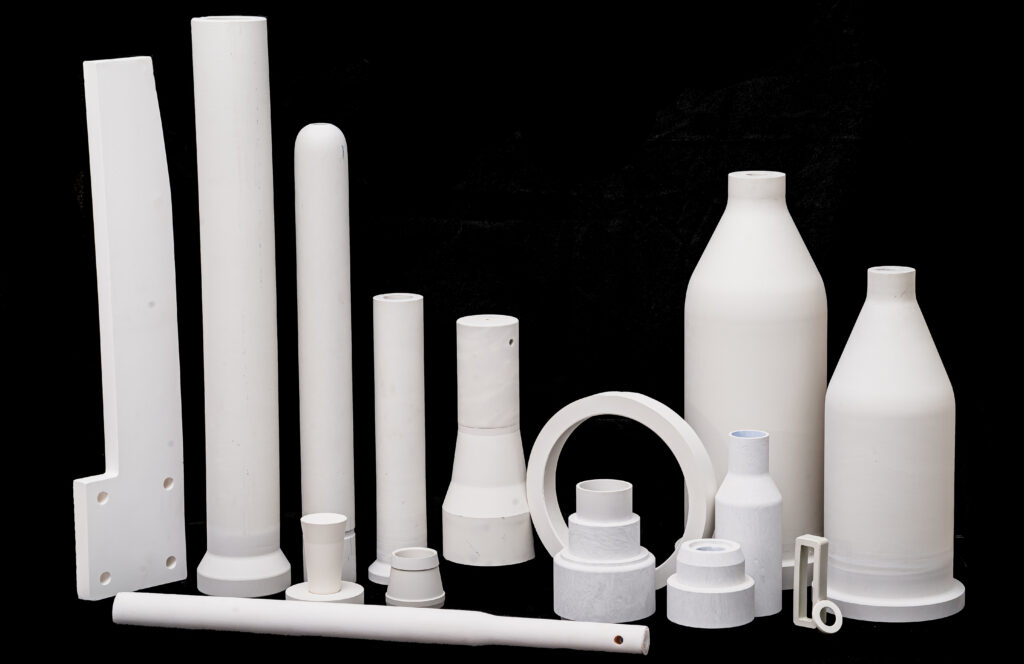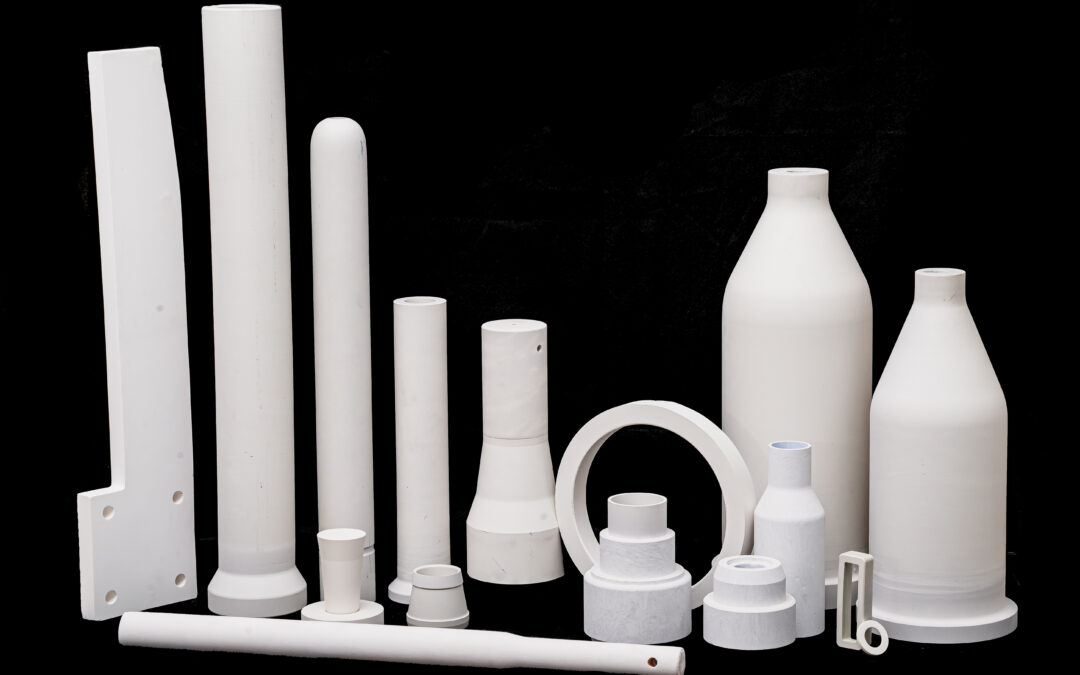In high-temperature applications, choosing the right materials is crucial to ensure
durability, efficiency, and safety. One such material that has gained significant
attention in recent years, because of its advantages, is aluminum titanate. This advanced ceramic offers
several advantages that make it an excellent choice for various high-temperature
environments. In this blog post, we will explore the benefits of using aluminum
titanate and its impact on improving performance in demanding applications.
Aluminum titanate (Al2TiO5) is a ceramic composed of aluminum oxide (Al2O3)
and titanium oxide (TiO2) – this unique blend provides it with exceptional thermal
shock resistance, low thermal expansion, and high thermal conductivity. These
properties make aluminum titanate an excellent material for use in the production
of various products used in the foundry industry for the Automotive sector and
others.

Let’s see what the material’s properties and advantages are:
- Exceptional Thermal Stability:
One of the key advantages of aluminum titanate is its exceptional thermal stability.
It is suitable for applications involving high-temperature
environments. Unlike other materials that may experience thermal expansion or
contraction, aluminum titanate maintains its shape and integrity even under intense
heat, ensuring reliable performance over an extended period. - Low Thermal Expansion Coefficient:
Aluminum titanate possesses a low thermal expansion coefficient, which means it
expands and contracts minimally when exposed to temperature fluctuations. This
characteristic is highly desirable in applications where dimensional stability is
critical. By minimizing the risk of cracks or distortion, aluminum titanate ensures
the integrity of components, thereby increasing their lifespan and reducing the need
for frequent maintenance or replacements. - Excellent non-wettability
Aluminum titanate has excellent non-wettability by molten aluminum due to its
low surface energy and the absence of any oxide layer on its surface. This property
makes aluminum titanate the ideal material for investment casting and other
precision casting applications, where precise shapes and dimensions are critical.
The property non-wettability of the aluminum titanate guarantees stable parameters
of the casting process when we use the detail riser tube.
- Excellent Thermal Shock Resistance:
High-temperature applications often involve rapid temperature changes, which can
cause thermal shock and lead to material failure. Aluminum titanate excels in this
aspect, thanks to its excellent thermal shock resistance. It can withstand sudden
shifts in temperature without cracking or breaking, ensuring the structural integrity
of critical components. This resistance to thermal shock contributes to improved
reliability, enhanced safety, and reduced downtime in demanding environments. - Corrosion Resistance:
Many high-temperature environments are also prone to chemical corrosion.
Aluminum titanate offers excellent resistance to various corrosive substances,
including acids, alkalis, and molten metals. This corrosion resistance enables the
material to maintain its structural integrity and functional performance, even when
exposed to aggressive chemical environments. By minimizing the impact of
corrosion, aluminum titanate helps to extend the lifespan of components and
reduces the risk of costly equipment failures. - Electrical Insulation Properties:
Apart from its thermal properties, aluminum titanate exhibits excellent electrical
insulation properties. It has a low electrical conductivity, making it ideal for
applications where electrical insulation is essential. This characteristic ensures that
electrical components and systems remain isolated and protected from potential
short circuits or electrical failures caused by excessive heat.
Aluminum titanate offers a wide range of advantages that make it a highly suitable
material for high-temperature applications. Its exceptional thermal stability, low
thermal expansion coefficient, excellent thermal shock resistance, corrosion
resistance, and electrical insulation properties make it an excellent choice for
demanding environments. By utilizing aluminum titanate, engineers and
manufacturers can enhance the performance, reliability, and lifespan of
components, leading to improved operational efficiency and reduced maintenance
costs.
As research and development in advanced ceramics continue, aluminum titanate is expected to play a significant role in shaping the future of high-temperature applications.
Using ceramics with lower thermal conductivity could reduce energy consumption
and emissions from furnaces, while lightweight and high-strength ceramics could
lead to more fuel-efficient transportation of foundry products.
The future of aluminum titanate is a bright one. With its unique properties, this
material is poised to revolutionize the foundry industry by providing more efficient
and eco-friendly solutions than ever before, that meet the demands of the market.

